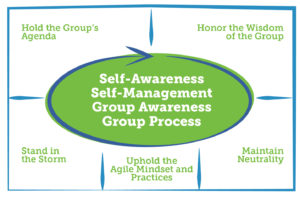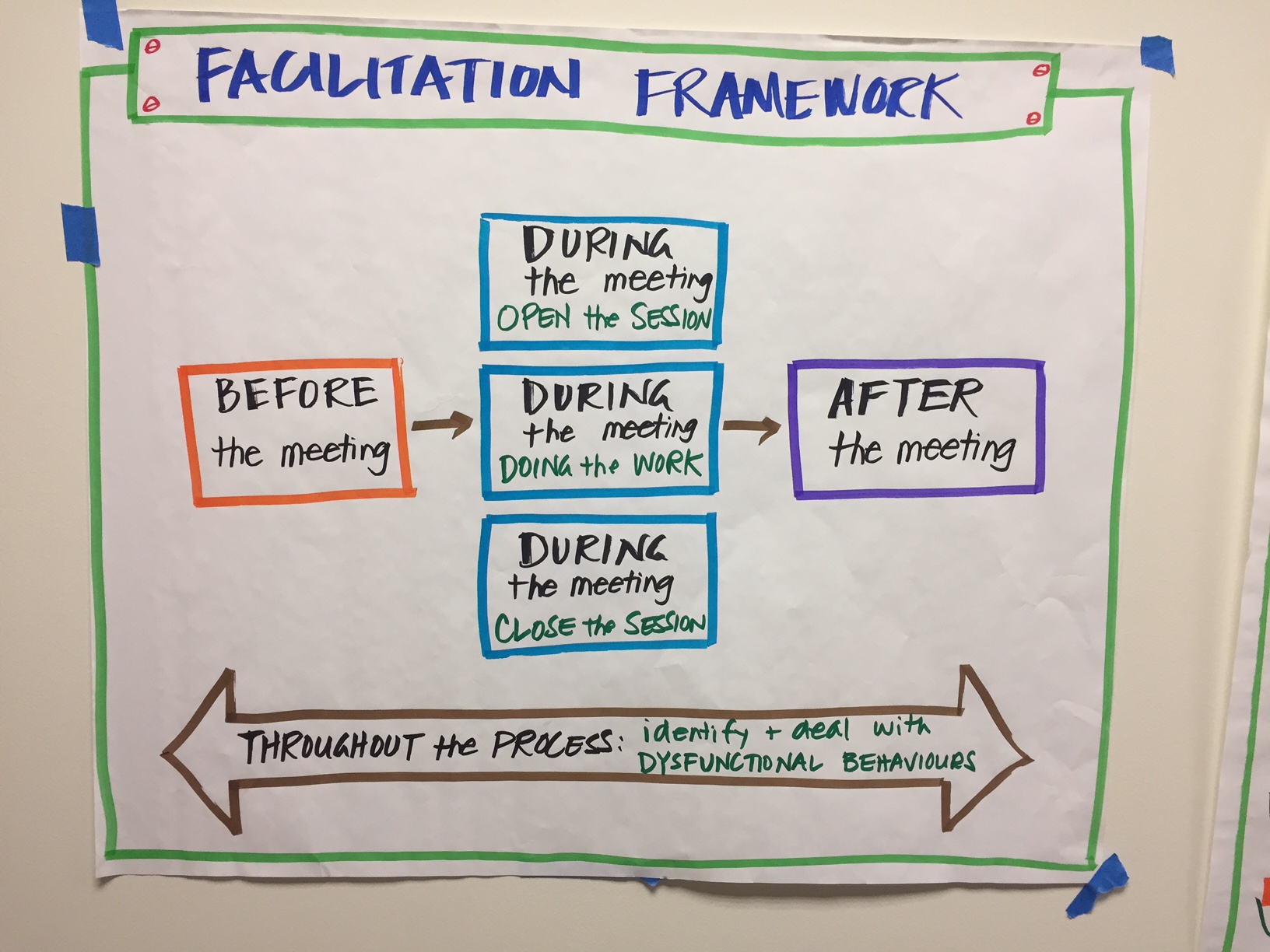Facilitation

Agile facilitation
Facilitation is the art of guiding discussion in a group. The role of a facilitator is to plan and implement an appropriate process; the rest of the group is responsible for the content of the discussion by contributing expertise. Facilitation aims at being economical (goal-oriented and time-efficient) and promoting the well-being of all participants involved (giving room to all voices in a group, establishing an atmosphere of listening to each other, and ensuring that decisions are backed and owned by all).
we offer tailored made offerings to assist in faclitation adoption at every level and scale of the enterprise
Agile Team Facilitation Techniques
what we believe about groups and teams and how those beliefs might show up in the room.
These are simple Techniques. You’ve likely noticed in the sections of internal assumptions and practices that it can get complex quickly. Each guiding principle offers its own complex, rich lessons and dynamics. In future posts, we’ll take deeper dives into these complexities with specific examples of each principle in action
- Maintain Neutrality
- Stand in the Storm
- Hold the Group’s Agenda
- Honor the Wisdom of the Group
- Uphold the Agile Mindset


Steps to Agile Facilitation
Agile Facilitation starts with team interviews and an assessment of the tools and collaborative patterns to start the transition to Agile. Effective Agile Development's facilitator would conduct the company and team interviews to better understand the objectives and obstacles
Agile Facilitation can be applied to any business meeting
Benefits of Agile Facilitation
believe that to achieve enterprise sustainability the waste in planning, retrospectives and requirements analysis must be identified and targeted appropriately. Organizations often can't see the waste because they have worked around it and made it a regular part of the culture for so long. An Agile Facilitation is a great place to start to identify the ineffective and inefficient practices that are holding your organization back.
- Better team collaboration.
- Improve Respect among.
- Improve transparence.
- Improve inspection & Adapt

Our Customers






Scale to Agile for Enterprise,Small & Medium Organization contact us for Agile Transformation, Agile Assement,Agile Implementaion, agile coaching, Agile mentoring, Agile workshops.